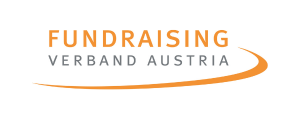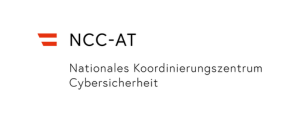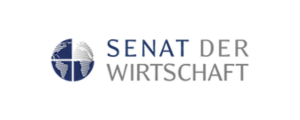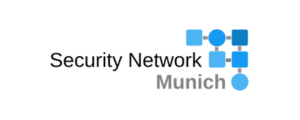CCCyber3D | COMPETENCE CENTER FOR CYBER DEMOCRACY-CYBER DEVELPMENT-CYBER DEFENCE
This competence center serves as an interdisciplinary platform that combines the topics of cyber democracy, cyber development and cyber security. Various specialist areas such as economics, sociology, psychology, technology and innovation are taken into account in order to understand their interactions. The aim is to develop new approaches to help companies and consumers remain resilient in the digital era. In particular, this should help to meet the challenges posed by the shortage of IT and cyber specialists and managers and to find solutions for sustainable cyber security.
The challenges facing the world today are far greater than the impact of the invention of telephony. Digitalization will fundamentally change society, the economy and politics. Forecasts are difficult; too many imponderables can have far-reaching consequences.
But today, the course is being set. Countless practitioners, experts, companies, scientists and researchers are racking their brains as to who needs to set and operate which levers, when and where, in order to steer development in an orderly fashion – for the benefit of future humanity and the economy.
Digitally caused accidents happen more often than we think.
If you add up technical sloppiness and targeted cyber attacks on companies or ministries, IT failures in Germany alone caused damage of 206 billion euros in 2022, for example. Systems came to a standstill, with all the economic consequences. Overtime had to be paid for administrators. Across Europe, the damage amounted to two trillion euros. [1]
Many people talk about cyber security, but only a few act accordingly. That is the general perception at the moment. There is no lack of knowledge or experts who know exactly what needs to be done. But when it comes to implementing the necessary measures and allocating the required resources, they are often met with resistance – whether due to entrenched habits or other limitations. As a result, security gaps are left open for criminal hackers to exploit to their advantage.
Successful security policy and the design of security strategies for the public and private sector – in a national, European and global context – especially in the development of forward-looking concepts for resilience and the protection of critical infrastructures, requires an open and unbiased exchange of ideas between all stakeholders in society, politics, business, public administration, science and research.
Technical progress in the field of computer technology has undergone a revolutionary development in recent decades. Efficiency and productivity have increased in numerous industries and new business models and social interactions have emerged that were previously unthinkable.
Innovative business models (smart business models) based on digital technologies are steadily conquering all areas of the private sector and public administration. At the same time, cyber risks and supply chain risks are increasing. In combination, these can lead to crisis-like situations.
Increasing digital resilience and ensuring cybersecurity in the digital world as a whole are of great importance for the security of a state. This is expressed, for example, in the “Austrian Strategy for Cybersecurity” (ÖSCS) from 2021, which sets out the vision of creating a secure cyberspace in the long term as a contribution to increasing the resilience of Austria and the European Union through a whole-of-government approach.
New EU directives and regulations, such as the new EU Directive (NIS2 Directive) are expanding their scope to include more sectors and companies. It also introduces detailed measures for cybersecurity risk management, stricter supervision and enforcement requirements and harmonized sanctions.
Intelligent solutions for companies, private households and communities generate higher customer satisfaction and provide companies with decisive competitive advantages. Finding solutions for the secure use of information and communication technologies and the associated risk and crisis management are an essential part of any organization’s information and communication infrastructure, taking into account internal and external stakeholders.
As early as 2016/2017, the Centre for Risk and Crisis Management began an initial working group to consider what solutions would be needed to stabilize or eliminate the expected shortage of skilled workers and associated cost increases in the IT/cyber sector for private households and companies – especially SMEs – in terms of cyber security and resilience and the resulting market disruptions.
A response to these challenges is therefore urgently needed.
In order to meet these challenges effectively and efficiently, this working group came up with the idea – after CORONA – from 2022 to 2023 for the conception, planning and 2024 for the initialization of cooperative solutions, such as:
- the establishment of an international cyber relief organization in Switzerland and the associated independent national cyber relief organizations in Austria, Germany and Switzerland for private individuals, SMEs and municipalities were planned and implemented in 2024 (https://cyber-hw.org ).
The purpose of the individual national „Cyber-Charities -Digital Angels“ is: Emergency assistance on site as well as Cyber Incident Management and Response (CIR) for private individuals and SMEs and awareness training for 3-6 year old children apo. Cyber- Projekt: « CYBER-KIDS-Junior Digital Angel”. For more information see link below.
- the founding of the first cooperative for digitalization, challenge and innovation management (GDCIM) for SMEs, liberal professions and private households. (https://gdcim.coop )
The cooperative is a purchasing, sales and service association for SMEs and realizes its purpose through the cooperative association of producers, traders, consultants (technical, legal, business management) and other service providers, mainly from the digitization, supply chain, ICT, cyber, risk, crisis and security management sectors. For more information see link below.
The Competence Center’s tasks include:
- Positioning the competence center as a visible, accessible, reliable and credible conductor of an ethical and digital future and developing new value chains.
- Analysis and conception of new strategies and options for cooperative organizational solutions to achieve social, governmental and corporate CYBER RESILIENCE
- Perception as a strategic and innovative competence cell for the support and further development of ZRK initiatives and start-ups: Cyber-Hilfswerke in Austria, Switzerland and Germany as well as the Cooperative for Digitalization, Challenge and Innovation Management in Switzerland and beyond
- Identification and ongoing evaluation of (new) social, technological and economic developments for continuous social, governmental and corporate CYBER RESILIENCE
- Continuous concept and method development for the implementation of technological, sociological, psychological and economic strategies for continuous social, governmental and entrepreneurial CYBER RESILIENCE
- Research and development in the subject area and knowledge transfer
- Develop and disseminate best practices on a scientific basis through research, publishing and organizing/participating in congresses, symposia and seminars.
- Maintaining an international community from all scientific and economic disciplines in order to constantly promote the development and work of this competence center.
[1] Quote: Prof. Dr. Jochen SCHILLER, ZEIT ONLINE, August 12, 2024, 7:49 pm: Jochen Schiller: “Fragen werden meist erst gestellt, wenn es irgendwo kracht” | ZEIT ONLINE

Competence Center Responsibility:
Dipl.-HTL-Ing. Lambert SCHARWITZL, MSc, MA
Head of the Competence Center
Send your request here















